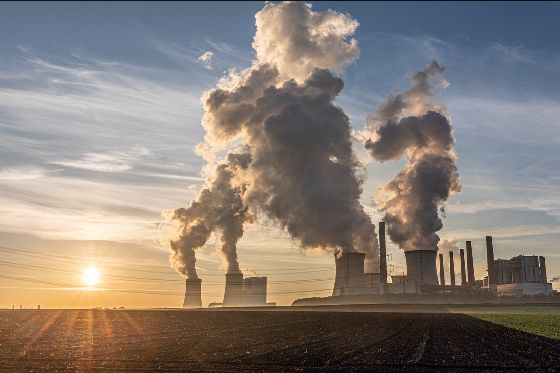
By Dr Joe Milton, the Australian Science Media Centre
Despite an uptick in clean energy generation, global use of oil, coal and gas continues to soar, leading to record greenhouse gas levels in 2024, according to this year's Global Carbon Budget.
The budget, a multinational effort led by the Global Carbon Project hosted by CSIRO in Australia, was launched this week at the COP29 climate talks in Azerbaijan and at an AusSMC Briefing.
The Global Carbon Project team tracks trends in carbon emissions and carbon sinks, such as oceans and forests, which absorb greenhouse gases from the atmosphere.
The budget says emissions are likely to rise by 0.8% throughout 2024, which is a slower rate than in previous years, but any growth in emissions means we are heading in the wrong direction as climate change accelerates, the report authors said.
"We are at a point where emissions should have already peaked and come down very quickly, so whether it's a big growth or small growth, it's a terrible growth full stop," Dr Pep Canadell, executive director of the Global Carbon Project and chief research scientist at CSIRO, told journalists at the briefing.
No peak is in sight for global carbon emissions, according to the budget.
A rise of 0.8% may not sound like much, but "this equates to a total of 37.4 billion tonnes of CO2 projected to be emitted in the atmosphere from fossil fuel use this year alone," said Dr Canadell.
In Australia, emissions from fossil fuels have fallen as coal emissions dropped and gas emissions declined for the first time, but oil emissions were up, according to Dr Canadell.
"2023 for Australia shows the humungous challenge we have with all the fossil fuel energy we have, but clearly an extraordinary growth of renewable energies," he said.
In terms of carbon sinks, the report found their capacity to absorb carbon has reduced.
"Over the past two years... the capacity of natural CO2 sinks on land ..., mainly forests, has declined due to drought in the Amazon and fires in Canada," said Dr Canadell. However, he added that these sinks are showing signs of recovery.
CO2 emissions have declined or slowed in 22 of the countries investigated by the report, but it found there is a 50% chance of exceeding the Paris Agreement’s target of 1.5°C warming in the next six years.
The challenge now is to reduce emissions to 'Net Zero' by 2050.
"CO2 must reach net zero," said Dr Canadell. "It's a physical requirement of the planet, and that's because CO2 accumulates for thousands of years in the atmosphere."
You can read about the AusSMC Briefing here
This article originally appeared in Science Deadline, a weekly newsletter from the AusSMC. You are free to republish this story, in full, with appropriate credit.
Contact: Joe Milton
Phone: +61 8 7120 8666
Email: info@smc.org.au